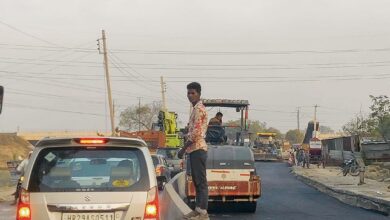Four states’ polls may be impacted by the heatwave
A heatwave that is sweeping many states has affected voter turnout in the first round of polls, and parties and voters are facing more challenges than just rising political temperatures as the ruling NDA looks to win a third consecutive term, despite the INDIA bloc’s best efforts to prevent it.

The first and largest round of the general elections saw 65.5% of voters cast ballots, which is 4.4 percentage points less than the 69.9% recorded in the same constituencies in 2019.
There is a heatwave warning in effect for portions of at least four of these states—West Bengal, Bihar, Uttar Pradesh, and Karnataka—on Friday, which has experts and the Election Commission concerned. Up to thirteen states and Union territories will be voting in the second phase of the election. Data from the Lok Sabha seats of Nawada and Gaya in Bihar supports the theory that greater temperatures—particularly those over 40 degrees Celsius—have an effect on voter participation. When the highest temperature in Nawada was 35 degrees Celsius on April 11, 2019, 52.5% of people showed up; on April 19, 2024, when the maximum temperature was 42 degrees Celsius, only 41.5% of people showed up.
When the highest temperature in Gaya was 35 degrees Celsius on April 11, 2019, the turnout was 56%. Last Friday, when the maximum temperature was 42 degrees Celsius, the turnout was 52%. An increasingly high number of heatwave days are predicted for the next hot summer by the India Meteorological Department.
The IMD chairman was present at a high-level meeting that chairman Election Commissioner Rajiv Kumar and the Election Commissioners convened to assess the situation with six rounds of voting remaining.
In order to assess the availability of essential amenities at every polling place, such as fans, drinking water, and awnings, a conference with the state chief electoral officers is also scheduled.
With poor voter participation in the last several elections, Ghaziabad in western Uttar Pradesh will face even greater challenges from the heat.






